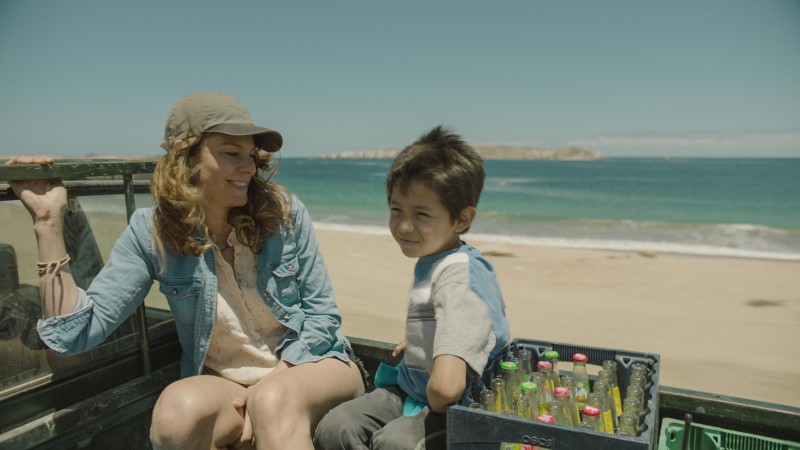QUICK SNAP: LIVE FROM TALLINN
A taut and smart Chilean thriller that blends societal unease with pure genre pleasures, Immersion is a gripping experience right from the start. The kind of clever, compact feature often missing in official festival competitions, it might also be the one with the best chance of commercial success.
Ricardo (Alfredo Castro) is divorced, taking his daughters Tere (Consuelo Carreño) and Claudia (Mariela Mignot) on a boat trip to see his brother’s house. His rift with his more spunky daughter Tere is rather pronounced from the beginning, drawing his ire when she decides to bathe topless. Then he spots three men on a boat quickly filling with water. Instead of helping them, he drives away as quickly as possible.
It’s obvious the story doesn’t end there, Tere goading her father to return to help these men; leading to a fascinating game of wills that keeps the tension constantly rising. There is an obvious racial element to proceedings. Ricardo and his daughters are white, while the fishermen are Mupache. Ricardo initially says he didn’t want to pick up them up simply because he doesn’t like their faces. He is a deeply paranoid man: he obviously believes that they will rob him, setting the scene early on when telling stories of houses being burned and looted by the locals. No mention of whose land it was in the first place, of course…
Immersion shows that you can do so much in a thriller just through suggestion and foreboding, and how paranoia can often be the most dangerous emotion of all. While some of the twists can feel quite contrived, including Ricardo’s constantly changing mindset, Castro is able to embody privilege, loathing and self-righteousness with immense ease, selling us on each further plot development.
Even if the film’s premise is an exceptional circumstance, it actually plays on one of the most relatable of issues: the impossibility and stress of making decisions on a family holiday. As they scramble across the lake to come to a final decision, each solution naturally ends up frustrating someone. What’s even more impressive is that even while Ricardo is a reprehensible person, we can’t help but feel sorry for him. Trying to tell your daughters what to do on holiday is already a nightmare for most people.
It’s amazing how much action takes place just on the boat itself, without ever losing our interest. The white sailboat (tellingly powered by motor) becomes a deeply claustrophobic place, the surrounding water always suggesting a sense of danger. In fact, it’s the kind of simple high concept thriller premise that American producers might be angling to remake. Of course they won’t need to. Immersion already does the job incredibly well. This is the kind of smart thriller that knows that it doesn’t need to do much to be a success, while also making you think about race and class dynamics in the process.
Immersion plays in the First Feature Competition at the Tallinn Black Nights Film Festival, running from 12th – 28th November.











